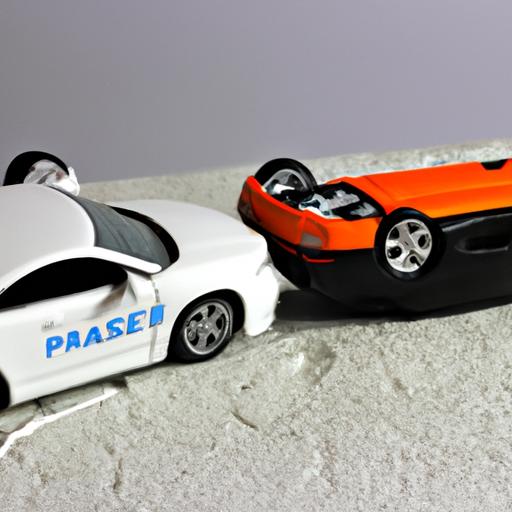
Introduction
Car insurance is a crucial aspect of responsible vehicle ownership, providing financial protection in the event of unexpected accidents or mishaps on the road. It serves as a safety net, offering peace of mind knowing that you are covered in various situations. But what exactly does car insurance cover? Let’s delve into the specifics to understand the extent of protection it offers.
When it comes to car insurance coverage, there are several key aspects to consider. From liability coverage to comprehensive and collision coverage, each type serves a different purpose in safeguarding you and your vehicle. Understanding these nuances is essential in making informed decisions about your insurance needs. Let’s explore the diverse range of protections that car insurance can provide.
Types of Coverage Offered by Car Insurance
Liability Coverage
Liability coverage is a fundamental component of car insurance, designed to protect you in the event that you are at fault in an accident. It covers the costs associated with property damage and bodily injury to others involved in the collision. This coverage is mandated by law in most states, ensuring that you are financially responsible for any harm caused to others on the road.
Collision Coverage
Collision coverage is another essential type of car insurance that covers the costs of repairing or replacing your vehicle in the event of a collision with another vehicle or object. This coverage is particularly valuable for protecting your investment in your car and ensuring that you can get back on the road quickly after an accident.
Comprehensive Coverage
Comprehensive coverage goes beyond collision protection, covering damages to your vehicle that are not related to accidents. This includes theft, vandalism, natural disasters, and other non-collision incidents. Comprehensive coverage provides added peace of mind by offering financial protection in a wide range of scenarios.
Uninsured/Underinsured Motorist Coverage
Uninsured/underinsured motorist coverage is designed to protect you in the event of an accident caused by a driver who does not have insurance or has insufficient coverage to pay for damages. This coverage ensures that you are not left financially vulnerable due to the actions of uninsured or underinsured drivers on the road.
Damages Covered by Car Insurance
Property Damage
Car insurance typically covers damages to the property of others caused by your vehicle. This includes repair costs for vehicles, buildings, or other structures that may have been damaged in an accident where you are at fault. Having property damage coverage ensures that you are financially protected in case you cause harm to someone else’s property while driving.
Bodily Injury
In addition to property damage, car insurance also covers bodily injuries resulting from an accident. This includes medical expenses for the treatment of injuries sustained by you or others involved in the accident. Bodily injury coverage ensures that you have the necessary financial support to cover medical bills and rehabilitation costs in the unfortunate event of an injury.
Medical Expenses
Car insurance can also help cover medical expenses resulting from a car accident, regardless of who is at fault. This coverage extends to medical treatments, hospital stays, surgeries, and other healthcare-related costs incurred due to injuries sustained in a collision. Having medical expense coverage provides peace of mind knowing that you have support for necessary medical care in times of need.
Legal Fees
In some cases, car insurance policies may also include coverage for legal fees associated with accidents or lawsuits. This can help cover legal representation costs if you are sued for damages or injuries resulting from a car accident. Legal fee coverage ensures that you have the necessary support to navigate legal proceedings and protect your interests in challenging situations.
Additional Coverage Options
Rental Car Coverage
In the unfortunate event that your vehicle is in the shop for repairs after an accident, rental car coverage can be a lifesaver. This type of insurance ensures that you have access to a temporary vehicle while yours is being fixed, preventing any disruptions to your daily routine.
Roadside Assistance
Roadside assistance is a valuable add-on to your car insurance policy, providing support in case of breakdowns, flat tires, or other roadside emergencies. With this coverage, help is just a phone call away, ensuring that you are never stranded on the side of the road.
Gap Insurance
Gap insurance bridges the “gap” between what you owe on your car loan and the actual cash value of your vehicle. In the event of a total loss, such as theft or a severe accident, this coverage can be a financial lifesaver, preventing you from being left with outstanding loan payments on a vehicle you no longer have.
Personal Injury Protection
Personal injury protection, also known as PIP, covers medical expenses for you and your passengers in the event of an accident, regardless of who is at fault. This coverage can help with medical bills, lost wages, and other related expenses, providing essential financial support during a challenging time.
Exclusions to Car Insurance Coverage
Intentional Damage
Car insurance is designed to protect you from unforeseen accidents and incidents, but it does not cover intentional damage caused by the policyholder. If you purposefully damage your own vehicle or someone else’s property, your insurance provider will likely not cover the costs associated with repairing or replacing the damaged items.
Racing or Illegal Activities
Engaging in illegal activities such as street racing or reckless driving can void your car insurance coverage. Insurance companies typically exclude coverage for any damages or injuries that occur as a result of participating in illegal activities. It is essential to abide by traffic laws and regulations to ensure that you remain protected under your car insurance policy.
Wear and Tear
While car insurance covers damages caused by accidents or specific events, it does not typically cover normal wear and tear on your vehicle. Routine maintenance, such as oil changes, tire rotations, and brake replacements, are expenses that are generally not covered by car insurance. It is important to differentiate between regular maintenance costs and damages resulting from accidents when filing a claim with your insurance provider.
Conclusion
In conclusion, understanding what car insurance covers is vital for every driver. It goes beyond just fulfilling a legal requirement; it ensures your financial security and peace of mind on the road. From liability coverage to additional options like rental car coverage and roadside assistance, car insurance offers a wide array of protections tailored to your needs.
Remember, the right car insurance coverage can make all the difference in unforeseen circumstances. By familiarizing yourself with the types of coverage available and selecting the options that best suit your situation, you can drive with confidence knowing that you are well-protected. So, take the time to review your policy, ask questions, and make informed decisions to ensure you have the coverage you need when you need it most. Stay safe on the road!


